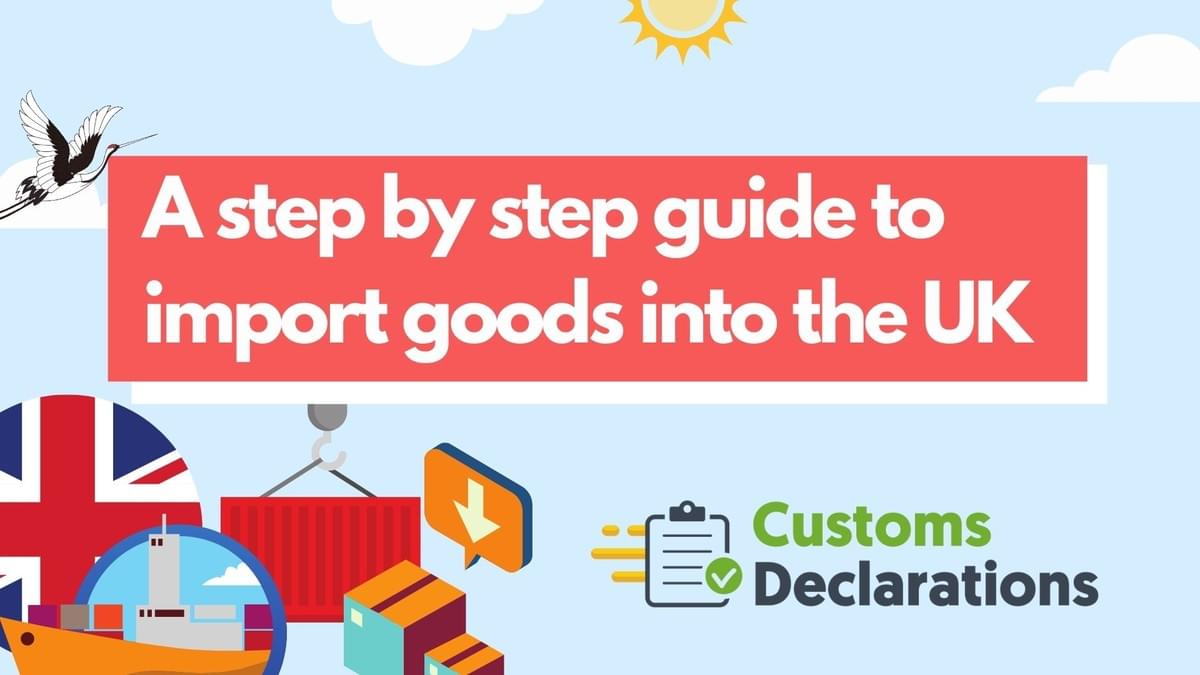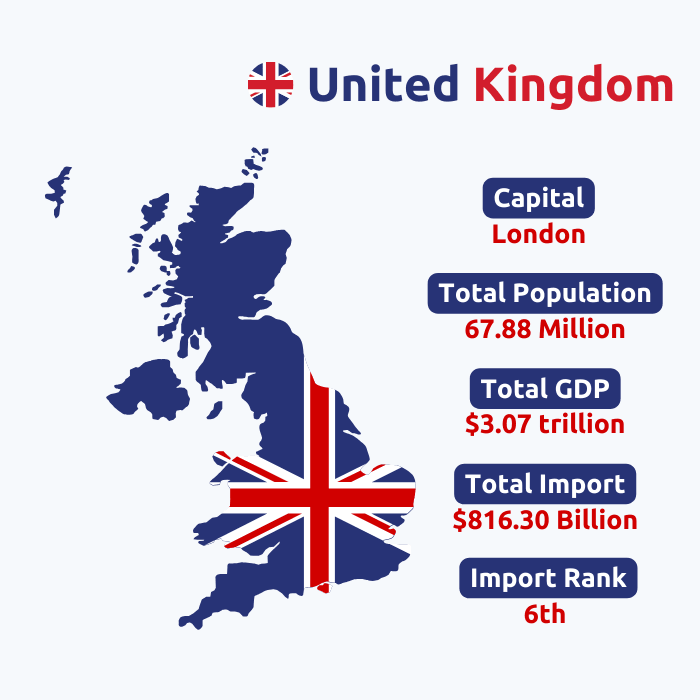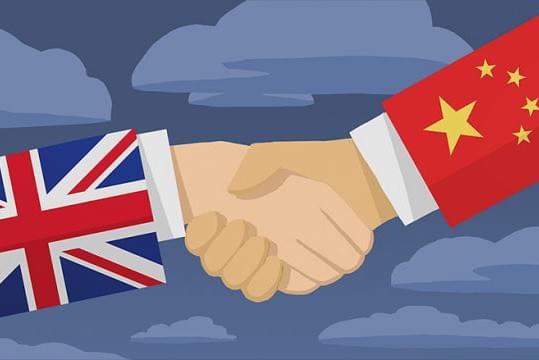🌍 The Shocking Truth About UK Imports You Need to Know (But Might Need Therapy After Learning)
Imagine standing at the customs checkpoint, your heart racing faster than a British person when someone jumps the tea queue, wondering if your carefully packed shipment will make it through—or become an expensive nightmare that your therapist will hear about for years to come. Every year, thousands of importers face potential customs pitfalls that can cost them thousands of pounds and enough stress to make their hair fall out in clumps.
But what if you could unlock the secret to smooth, stress-free importing? (Besides having a direct line to the Prime Minister or owning a teleportation device, which we assume you don't.)

Quick Navigation (For When You're Already in Panic Mode)
- What Can You Import? (Besides regret and anxiety)
- Forbidden Items (Things even your smooth-talking can't get through)
- Special Conditions (When "yes" means "yes, but with 47 forms")
- Step-by-Step Import Process (Grab coffee, this might take a while)
📦 What Can You Actually Import in 2025? (Besides trouble)
The UK's import landscape is constantly evolving, and 2025 brings some critical updates. Here's a comprehensive breakdown of importable goods:
Allowed Categories (with Caveats)
The UK's import landscape is constantly evolving, like a shapeshifting bureaucratic monster that feeds on paperwork and importers' tears. Here's a comprehensive breakdown of importable goods that might make it through if the customs gods are feeling generous:
Allowed Categories (with Caveats the Size of Scotland)
Live Animals and Animal Products (For When Your Pet Has a Better Passport Than You)
- Meat, dairy, eggs (with enough documentation to fill a library)
- NEW in 2025: Stricter post-Brexit traceability requirements (because tracking a steak's life story is now a national priority)
- Pets: Must come from approved countries with up-to-date health certificates (your dog needs better healthcare documentation than most humans)
Food and Agricultural Products (Or: How to Make Farmers' Paperwork Even More Complicated)
- Fresh produce (must be fresher than your excuses for missing documentation)
- Processed foods (the more processed, the more forms required, apparently)
- Tea, coffee, spices (national priorities, handled with reverence)
- IMPORTANT: Phytosanitary certificates now mandatory for all plant-based imports (because plants need passports too)
Industrial and Commercial Goods (The "Please Take Our Money" Category)
- Machinery (that will probably be obsolete by the time it clears customs)
- Electronic equipment (with charging cables that won't fit UK outlets, naturally)
- Textiles (subject to inspections for both quality and fashion crimes)
- Vehicles (must meet UK safety standards, including steering wheels on the wrong side)

🚫 Absolutely Forbidden: What Never Makes It Through (Not Even With Your Most Charming Smile)
Some items are strictly prohibited, no matter how convincing your "but I didn't know" face is:
- Illegal drugs (surprisingly, still illegal when you try to import them)
- Weapons and offensive items (your witty t-shirt slogans might also fall into this category)
- Counterfeit goods (your "Guchi" bags aren't fooling anyone)
- Endangered species products (that exotic skin wallet isn't worth the prison time)
- Certain agricultural products without proper certification (your grandma's homemade jam might be considered a bioweapon)
🔍 Special Import Conditions in 2025 (When "Special" Means "Extra Paperwork")
CBD Products (For When You Need Something to Calm Down After Dealing with Customs)
- Must contain less than 0.0025% THC (they measure this with equipment that could detect a grain of salt in the Atlantic Ocean)
- Comply with 'novel food' regulations (because nothing says "novel" like forms in triplicate)
- Require lab testing certification (performed by scientists who wear both lab coats AND ties, that's how serious they are)
Alcohol and Tobacco (The Government's Favorite Tax Targets)
- Alcohol: Must register with Alcohol Wholesaler Registration Scheme (AWRS) (a name designed specifically to be impossible to say after sampling your product)
- Tobacco: Strict packaging and traceability rules (the cigarettes have better tracking than your Amazon packages)
🚢 Step-by-Step Import Process (Or: How to Test the Limits of Your Patience)
Obtain EORI Number (Your Golden Ticket to the World of Bureaucracy)
- Essential for all commercial imports (like oxygen is essential for breathing)
- Apply online through official government portal (which was designed by someone who hates both computers and humans)
Determine Commodity Codes (A Classification System Created by Sadists)
- Precise classification determines duties and regulations (get it wrong by one digit and your shipment might accidentally be classified as nuclear waste)
- Use HMRC's online classification tools (created by the same people who write instruction manuals for flat-pack furniture)
Customs Declaration (Where Truth Meets Paperwork)
- Register with Customs Declaration Service (CDS) (another acronym to add to your collection)
- Electronic submission mandatory (paper is so 2023)
- Automated error checking (which finds errors you didn't know could exist)
Calculate Duties and VAT (The "Why Is This So Expensive?" Phase)
- Use official UK government calculators (which always seem to round up)
- Factor in post-Brexit trade agreements (a document longer than all Harry Potter books combined)

💡 Pro Tips for 2025 Importers (From People Who Learned the Hard Way)
- Stay updated on changing regulations (subscribe to government alerts or just listen for distant screams of other importers)
- Consider professional import agents (they've seen things that would make customs officers cry)
- Invest in comprehensive documentation (if you think it's too much paperwork, add more)
- Use digital customs declaration tools (because carpal tunnel from filling forms by hand isn't fun)
- Understand trade agreements (or at least pretend convincingly that you do)
🆘 Need Expert Help? (When DIY Becomes OMG)
Navigating UK imports can be complex, like trying to solve a Rubik's cube while blindfolded and riding a unicycle. Consider:
- Hiring a licensed customs broker (they speak fluent Bureaucratese)
- Attending import/export workshops (where you'll meet other shell-shocked importers)
- Joining trade associations (misery loves company)
- Consulting with Department for International Trade specialists (who might actually know what they're doing)
Final Thoughts (For When You're Questioning Your Career Choices)
Importing into the UK doesn't have to be a nightmare that makes you wake up in cold sweats screaming about commodity codes. With the right knowledge, preparation, and resources (and possibly a sense of humor), you can turn potential customs challenges into smooth, successful transactions.
Remember: Even the most complicated import process eventually ends. Usually. We think.
Ready to become an import expert? Bookmark this guide, take a deep breath, and maybe keep your therapist on speed dial!